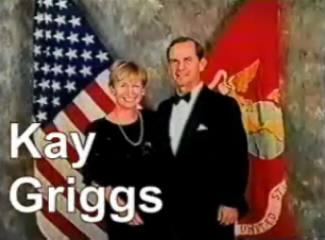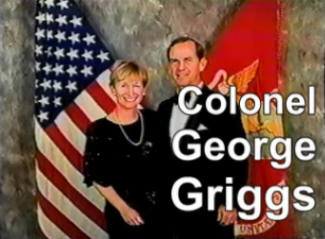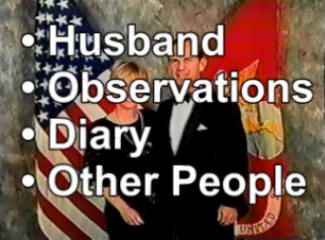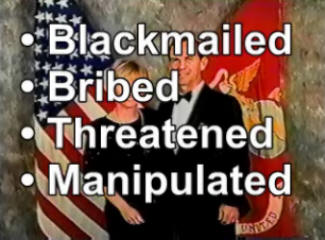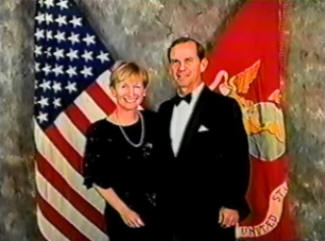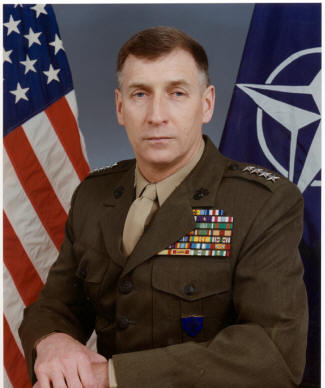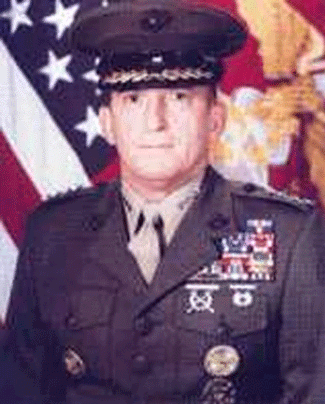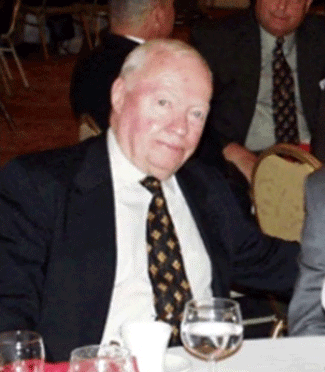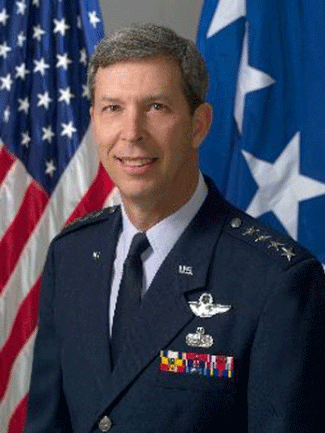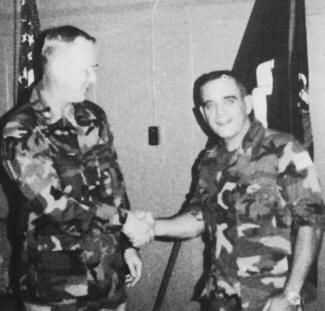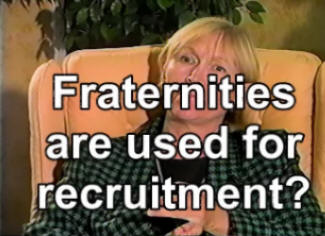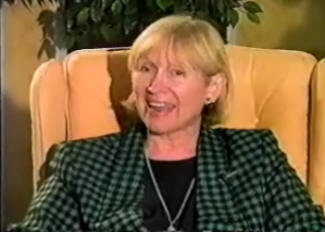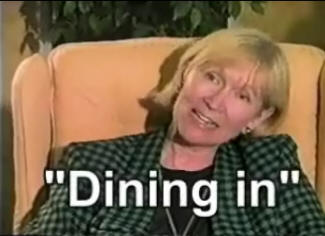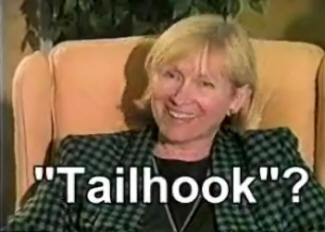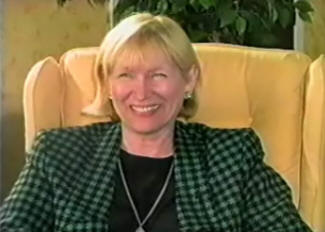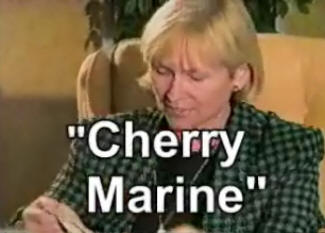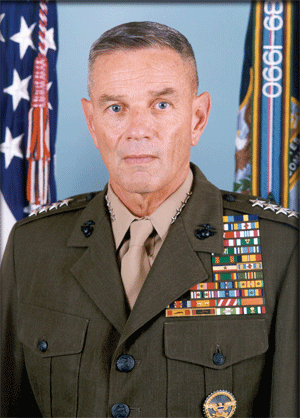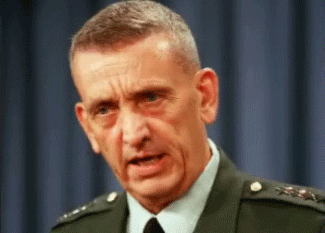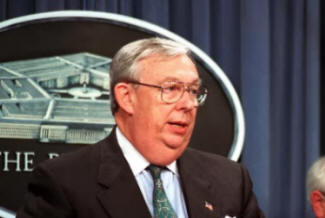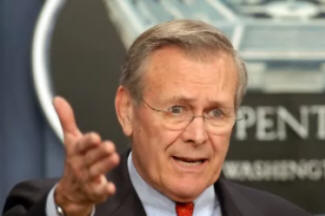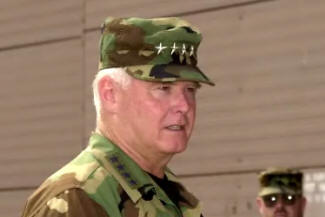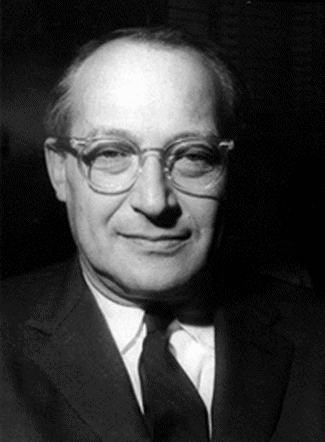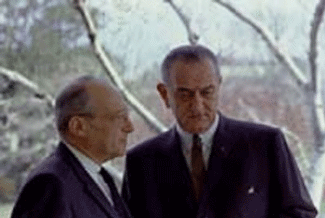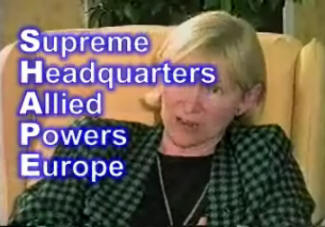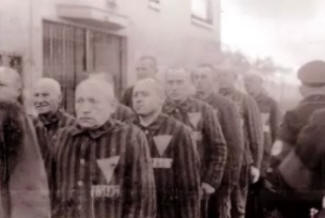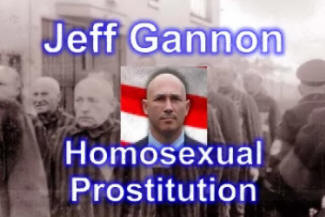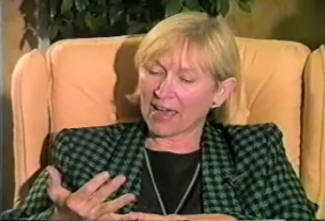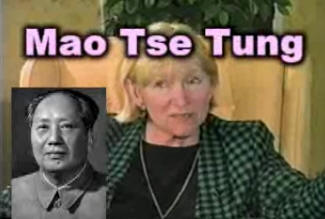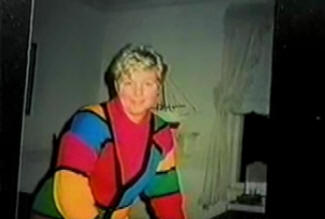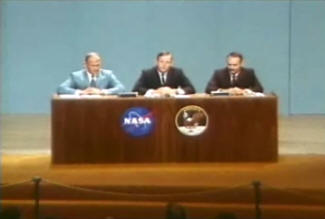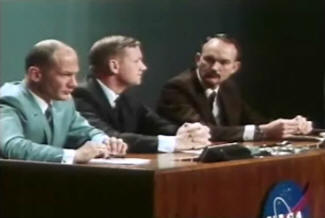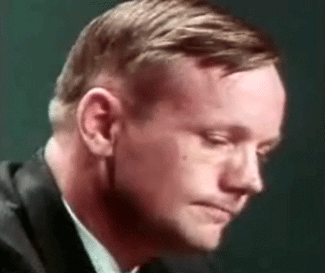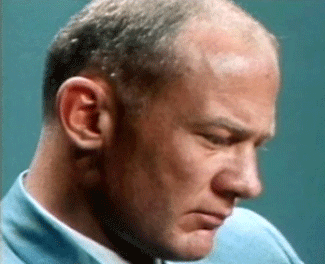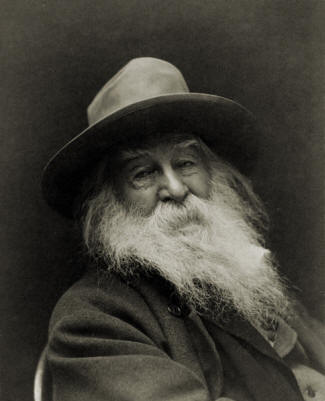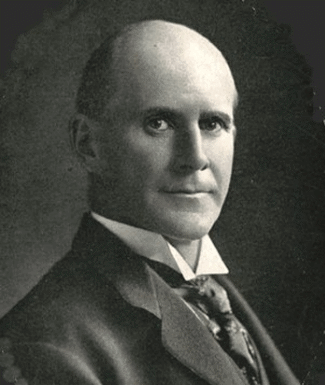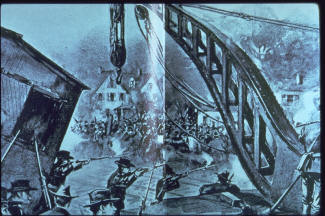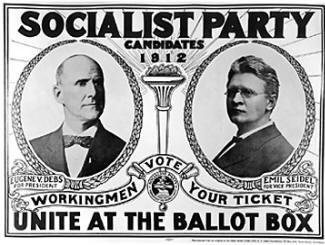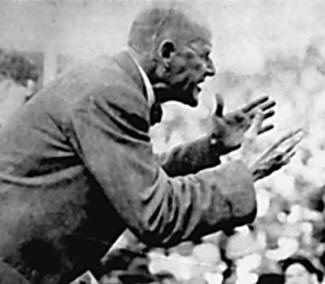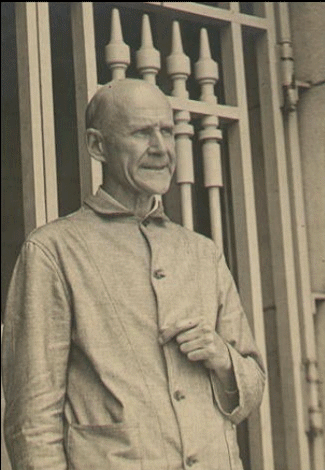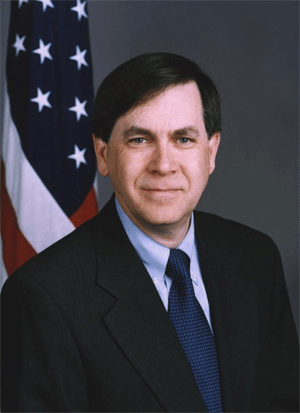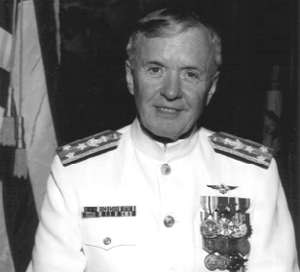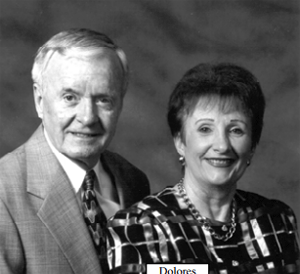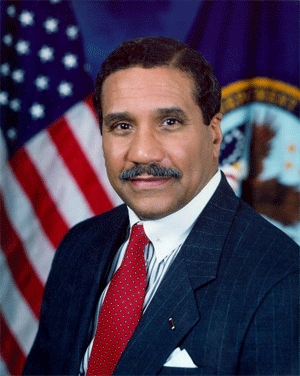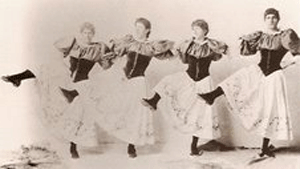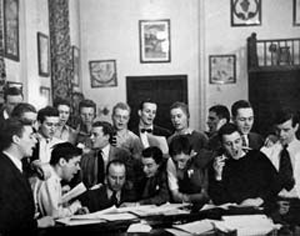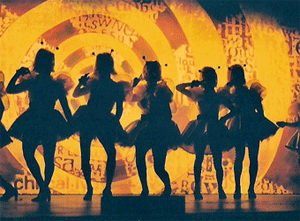[Pastor Strawcutter] And Albert Einstein was in this group.viewtopic.php?f=179&t=968&start=161
[Kay Griggs] Yes, in that homosexual, bisexual group. Absolutely. Also Camus and Sartre. I don’t believe my husband actually met Camus, but Camus was a lover of his French teacher at Princeton. Not Todavey, the one who helped him with his paper, and who he had an affair with. And I was told that by his normal roommates who he had later on, and by another roommate, who knew George was doing this stuff. George was a cheerleader. He was a French major.
Another young teenager who was cultivated was Bob Edwards, who was a Marine Corps Colonel. He was part of that group. Bob Edwards went on to Fort Benning. He was in psychological warfare. In fact, he was involved with the subterfuge after I was injured.
My husband socked me in the breast, and I had to have surgery because he’d already broken my leg. And I was starting to document the violence. But I’m such an upfront person, and all I wanted him to say was, “I’m sorry Kay I did this.” But I was trying to do what they say Rosey Grier did. If you are battering your wife, you put a mirror up in front of yourself, or a photograph, and you try to imprint the lower brain. Because I wanted to save his soul. I mean, this guy had murdered his first wife, battered her to death, and dragged her body back. Sue had a cerebral hemorrhage. It’s too much for me to get into. And he was doing that to me. And I stopped him from drinking thinking that this would stop the battering. But I started taking notes, and taping things while he would go on these rages. Because I wanted somebody to know. I wanted somebody to help me, so I wouldn’t die. And I had had surgery. I had broken bones. And I was trying to reach out for some help. So I was trying to get him to realize what he was doing to me. And I said to him, “George, I know you did this to Sue. Do you really want me dead?” But he started getting scared. He was cool.
[Pastor Strawcutter] Did he ever admit to you that he was responsible for his first wife’s death?
[Kay Griggs] Yeah. He admitted that they didn’t get along. He admitted that he didn’t love her. He admitted that he’d hurt her. He admitted that he dragged her body back after she supposedly collapsed at dinner. Now, this is a 200-pound woman. She is huge, because she’s not happy. She’s sleeping with her dog. She doesn’t sleep with her husband, because he’s too busy sleeping with other people. He doesn’t find her attractive. He’s sleeping with Nancy Earl. And she loves him, because he’s handsome. And what is she going to do? She never worked a day in her life. Her mother loves him. It’s like me. Who would believe you that a handsome wonderful guy [would batter you?] “Oh, but George is so nice.” This is what the wives go through. They know that it will be hard.
What George did is he had clout in the State Department. And they knew that I just loved showing people around. So he would plan something that I just had to do, and I would be hooked like a fish. And he got some dignitaries, parliamentarians from Panama. And of course we had to go to Richmond. So I had to stay overnight with them. And George didn’t want to go with me. And it just so happened that Bob Edwards, his Army Colonel friend, invited him to come up and meet with some of the guys at New Hope, Pennsylvania, or Bucks County, wherever it was.
Well, he had already been talking to Phil Holwager about the abuse, because I had gone in for surgery. And I thought it was very unusual that [Captain] Phil Holwager was there during the surgery, kind of holding George’s hand. It wasn’t for me. It was to make sure George didn’t fall apart. And to make sure I didn’t say anything to the doctor when I was under sodium pentothal. He was covering George’s ass, excuse my French. He was the Chaplain at Fleet Marine Force Atlantic. And he was the Chaplain for Sue’s funeral. He knew what George had done. And he runs around on his wife. He’s playing golf all the time. He and George were playing golf with this single woman. And I found out. And I said, “What are you all doing?” He’s the so-called “Chaplain.” And he went to school with Gary Hart. He was a classmate of Gary Hart at Yale, and a colleague of Pat Robertson’s. That’s not to say that Pat Robertson does that kind of thing. I don’t think he does. I’m sure he doesn’t. But they went to Yale.
So George was a violent man, and he started knowing that I was sort of going to do something. So he started doing certain things. Now I can see why, because of the violence. He wouldn’t have been able to use his .45 anymore if he’d been convicted of battering me. He would not have been able to use his pistol anymore, or carry it. So they wanted to make sure that he was protected. So the wife has got to go. The wife is way down the totem pole. And it doesn’t matter what wife. And that’s the reason why the Marine wives are so afraid. And they all talk cryptically. They even talk outside the house.
[Intelligence and Electronic Warfare Operations] This is interesting. It talks about sabotage, and subterfuge. This is the standard Army book that teaches men to lie, cheat, steal, and be peeping toms on women. Now if they don’t allow women in there, and they can peeping-tom all the wives they want, they don’t need movies, and pornography. And they go on all the TADs they want. They just take off, and don’t tell their wives where they are going. And they can lie. Because it’s all secret. They don’t have to tell their wives anything.
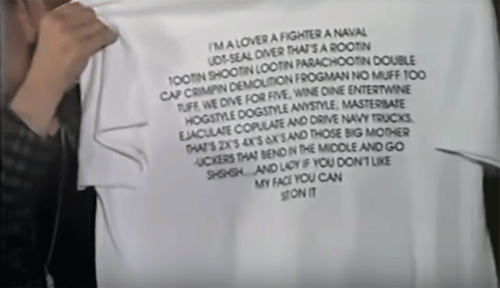
[Holds up T-Shirt] This is just a mild SEAL commando T-shirt:
I’M A LOVER A FIGHTER A NAVAL UDT-SEAL DIVER THAT’S A ROOTIN TOOTIN SHOOTIN LOOTIN PARACHOOTIN DOUBLE CAP CRIMPIN DEMOLITION FROGMAN NO MUFF TOO TUFF WE DIVE FOR FIVE, WINE DINE ENTERTWINE HOGSTYLE DOGSTYLE ANYSTYLE, MASTERBATE, EJACULATE COPULATE AND DRIVE NAVY TRUCKS. THAT’S 2X’S, 4X’S, 6X’S AND THOSE BIG MOTHER FUCKERS THAT BEND IN THE MIDDLE AND GO SHSHSH … AND LADY IF YOU DON’T LIKE MY FACE YOU CAN SIT ON IT
[Pastor Strawcutter] That’s a T-shirt that a SEAL would wear?
[Kay Griggs] Yeah. I played Nancy Drew, Miss Marple, and infiltrated the SEAL reunion this year. They spent a lot of money showing off. They were jumping out of helicopters. And they probably spent $100,000. I don’t know how much. But the Military was providing the funds for this little game on the beach at Fort Story. And then each one of the teams has T-shirts, that are all sexual.
[Pastor Strawcutter] The driving motivation for all this stuff is?
[Kay Griggs] Go for it! So I went to the party. I took my life in my hands. I called a couple of friends and said, “If I don’t come back, I’m at the SEAL party. And I’m going to pretend that I’m a SEAL wife. And I’m going to go to this drunken party.” And of course, I have an eagle on my car. They tried to get me to get rid of it. So I went in there, and 90% of the people there were men. They didn’t have wives at this party. There were a few wives, but they were all feeling very uncomfortable. So I sort of got in with some of the older SEALs.
[Pastor Strawcutter] Did your husband ever mention someone by the name of Lt. Col. Bo Gritz?
[Kay Griggs] No, but I know who he is. But he has a lot of Army friends. It’s not like he doesn’t know Bo Gritz. I’m sure that Bo Gritz is well-known to some of these guys. I believe he’s Army. I’m sure he’s not a Marine. I know he’s not a Marine. But he’s a guerrilla. He’s a commando. My husband was way above Bo Gritz’s level. My husband mentioned people like [Robert] McFarlane, and Krow [sp?]. Krow was his tennis buddy I think. [Alexander] Haig, [Henry] Kissinger and Victor [H.] Krulak. See, [Al] Gray is the control guy. Gray and [General] Joy. Joy is a big guy. But Joy lost his job at Morale Welfare Recreation, I believe, because I told – it wasn’t because of me that he lost his job, but they made him move on somewhere else. Because he was at Morale Welfare Recreation, which is kind of a money laundering thing. They run all the Officers’ Clubs, all the recreation. It’s all run by the Military, even though it’s supposedly not Military. And they give the good old boys these jobs. He was probably earning $200,000. The retirement for a Colonel, my husband, just the retirement salary, was $50,000-60,000. Then they give them these other jobs so their income is $200,000-$300,000. Now, that is not right. They all get swimming pools behind their houses.
[Pastor Strawcutter] Who is ever going to bite the hand that feeds that?
[Kay Griggs] Nobody. It’s dirty business. All of the Captains, and all of the Admirals, know this, and wink. It’s sick. It’s just really really really bad. This is taxpayer money, coming from hard-working people who are just wondering where the money is going to come from to pay their taxes. From mothers of children who are having to work two jobs to feed their three children. And they are spending $10 million on phallic-shaped weapons.
I went to the Army show just last week. I was up there. They had a hearing on Okinawan rapes. They call it ”A murder-rape-a-day, a crime-a-day,” by Marines in Okinawa. And I went up there. John Conyers had a hearing. And they also had the Army show, which I had gone to a couple of years before. And in the basement of this big hotel, they have these 200 or more vendors of weapons. Israel has a joint venture, IAI has a joint venture with TRW that does all the credit reports on Americans. They have the computers together. The Israelis stole the whole Inslaw system, and sold it back to the Justice Department. And there were murders over that. Mike Fuller knows about that. Mike Fuller was a former assassin who is talking, and they are after him, believe me. I met him through Sarah.
An odd informant named Michael Fuller predicted to Washington D.C. correspondent Sarah McClendon the day that Wilcher would die and die on that date he did. Fuller also claimed to me that he knew Danny Casolaro although no documentation supported his allegation.
-- Inslaw Update, by Virginia McCullough
[Pastor Strawcutter] What about this Victor Marchenko [sp?]?
[Kay Griggs] He is a typical example of the mercenary who is brought over from Czechoslovakia, Poland, and Romania -- the Eastern bloc countries -- who are actually KGB double agents. His family came over, and they weren’t even citizens. In other words, they bring over the young men. They work for five years, and then they become citizens. I’ve read his books. I wanted to meet the guy. He knows George. He knows who George is. I read two of his books to see if it’s what George said. If you read Marchenko’s book, you’ll see what my husband, the arrogance. “Well, sure we’re going to go into this embassy. We’re gonna put a whore with this person, and we’re going to spy on them, and what they are doing. And we’re going to steal that statue just for the hell of it.”
Now when you multiply every one of the teams, all the graduates, and think in terms of 100 men applying, and maybe 90 go through most of the training, but they don’t quite make it. And then they’ve got 400, 600 men who don’t make it. And then you multiply that over time. This gathering of SEALs that I went to, there were probably 1,000 guys there. Now they have to do a cold kill. Kill somebody. Murder somebody just to prove they can do it. Kill them like ducks.
[Pastor Strawcutter] The SEALs?
[Kay Griggs] Yeah, the SEALs.
[Pastor Strawcutter] So all thousand of these guys have killed somebody?
[Kay Griggs] Yeah, they’ve done a cold kill. It’s a graduation exercise.
[Pastor Strawcutter] Who would they kill?
[Kay Griggs] Oh, just somebody. Just anybody. Just go into a hotel, and whack off somebody. I was told for graduation exercises, the greatest thing they could do was to break into a General or Admiral’s wife’s house and steal some things, like personal items.
[Pastor Strawcutter] To prove you were good enough to get in and out?
[Kay Griggs] Oh yeah! My underwear disappeared, my lingerie. And the funny thing is -- I don’t know if it was Michael O’Boyle doing it -- because from 1991 to 1993, Michael O’Boyle was three miles away from my husband. He was at his graduation exercise. He was very close to my husband. And yet he was just down the road. And I started questioning my husband, “What is this about you and Michael?” Michael was there, and my husband never told me he was there. And he saw him all the time. And I’m looking back to when my teddies disappeared. But all this time, Michael -- he and his first wife had divorced, and that’s okay. But he had an affair with a woman and a child, a secretary. So he was having an affair with a woman, and Michael is both ways. But in order to get into the system, he sort of did it with my husband. He was my husband’s younger friend. And that started when he was in the Seventh Fleet under [Charles C.] Krulak and [General Louis H.] Buehl in Intelligence on the ship. But Michael, there he was at Little Creek, and my husband’s best friend. He never invited him over. But he saw him. So you can guess what that means.
The teams, the biological electronic warfare school -- see after my husband left FMFLand[sp?], he went to the Special Operations School which ran the teams, the foreigners, and everywhere.
[Pastor Strawcutter] The term MACSOG, what does that mean?
[Kay Griggs] It was kind of a code word for sending platoons to kill people in Vietnam. “SOG” is Special Operations Group. Special Operations SO, SS, OSS, Secret Service SS, Nazi Spetsnaz, the German Storm Troopers. If you know anything about the German High Command, it’s the Brotherhood. They are connected with Opus Dei, which is an Italian kind of business group, that works within the Vatican. And I’m told, and I like the Pope [John Paul II] -- I think he’s a wonderful guy -- but I’m told that he was involved with that during World War II.
[Pastor Strawcutter] I’ve heard that too.
[Kay Griggs] And that the guy who was the Pope before [John Paul I] was murdered, so that he could get in.
[Pastor Strawcutter] So I’m still curious about the SEALs and this murder thing. Now a SEAL, in order to complete his indoctrination for becoming a “full-fledged SEAL”, part of that includes the fact he has to have killed somebody?
[Kay Griggs] Yeah. SEAL Team 6. Right. The Red Team. The Getto[sp?] was the Captain of that team. And his wife and I had a wonderful conversation.
[Pastor Strawcutter] Would she confirm this as well?
[Kay Griggs] I guess so. She is scared. She is frightened. Most of these women are scared to death. Because they are warned. They know what happened to Sue Griggs.
[Pastor Strawcutter] But they support you philosophically in their hearts, at least, if not with their lips?
[Kay Griggs] Oh, yeah! We talk about it. Some of them have to go out of their house. Some of them won’t even talk in the office in which they work. They’ve had men come by their houses. They have had their papers stolen.
[Pastor Strawcutter] I mean, association with you could be the kiss of death.
[Kay Griggs] Yeah. Oh sure. And they know that. But we talk anyway. And you’re talking about some really brave women here. And when I talked to a couple of Colonels’ wives, before I went public, there were a couple of them talking to me, except for Carolyn Millice who turned on me just like that. She was the one whose house I was in when I told about the go-go dancers in the Officers’ Club, and me taking pictures, and thinking about writing a letter to the wives. And she said, “Oh, you can’t do that. You’ll ruin George’s career.” In other words, Carolyn has really bought into the system. She’s very pretty, and she’s very influential with the wives group. But she’ll turn on you in a second. And it really hurt me, because I kind of depended on her and Charlotte Moore.
But when I went public, when I started telling people what I knew little-bit-by-little-bit, just to get up my courage, and when I finally went to visit Sarah McClendon it was like, “You see! I told you!” Sarah McClendon called my house, and they told her it was a military base, and they said that the Griggs’ didn’t live there anymore. “Ha ha ha. See this paper!” Then I was totally shut off. But until that point, I went to see Peggy Sheehan. We had tea and food. And General [John J.] Sheehan was the head of NATO. And his wife Peggy said, and this was so strange, she said, “Just leave a note on your refrigerator for George.” In other words, “He’s coming in the house, they are coming in the house, and it will get to George.” This is SOP, standard operating procedure. “Just get used to it, get used to being battered.”
[Pastor Strawcutter] Well, she was a worshipper of the security of the position, the money, and everything. And “just don’t rock the boat, because this is the way it is.”
[Kay Griggs] Yeah, yeah.
[Pastor Strawcutter] “And we don’t want it different.”
[Kay Griggs] No, no. “If you have to divorce your husband, then that’s just the way it is.” But it’s cold and calculating, and so un-American. I mean, I know what America is like, because everybody in my family were World War II. My brother was a briefer for the [inaudible] staff. He went on to be a medical doctor. Of course, he got out as soon as he could.
[Pastor Strawcutter] You know, people who love this country and love its history are just completely confused, from cab drivers to bartenders. Nobody can figure out why everything goes the wrong direction.
[Kay Griggs] Do you know what I say? When I started this, I thought it was like maybe a 2,000 piece puzzle. Now I know it’s like a puzzle for a two-year-old, or a one-year-old, with six pieces. It’s so easy to see. And everybody who talks to me sees it the same way. I’m sort of an interpreter. I kind of give a lot of the wives hope, and the guys too who are already out and scared. And they say, “Hey, this little woman, she’s a real feisty you-know-what. And I don’t know whether they’re going to kill her, or what they’re going to do.” And they say, “Aren’t you afraid?” And I say, “Yes.” I’ve had death threats. It’s been hell. But truth and light, and the hell these other women are going through, being put through hell because their husbands are cowards and bullies. I mean, they are people who dress up in black, who hide behind trees, who shoot people from behind, who break into houses and steal their papers. This is in the Constitution. You don’t break into someone’s home. You don’t steal their papers. You don’t try to destroy the core that God has given them when they were born. Mothers have sons. And their sons are 18 years old. And they are telling them, “Join the Marine Corps to be a man.” That’s not a man! It’s not a man who does this! It’s a pervert! That’s why they’re not joining up anymore. That’s why they are having trouble with retention. Because the mothers are finding out. McVeigh’s mother has talked. The Unabomber’s mother and brothers have talked. People like Colonel Ron Ray is talking. What’s the name of the new boy who refused to wear the U.N. uniform? Michael New. These are the heroes. Michael New is a MacArthur. Randy Aber is the future Patton. These are the leaders. These are the Americans. And there are a lot of them. There are hundreds of thousands of them.
And just like in the days of Jesus Christ, these modern-day Sadducees and Pharisees are saying, “Ha ha ha, we’re going to kill Jesus. We’re going to get rid of MacArthur. We’re going to get rid of Patton. We’re going to get rid of Michael New. We’re going to get rid of Colonel Sabow.” They murdered him. But this is physics. Every one, like Sue Griggs that was murdered, Sabow was murdered, the wives who are murdered, Ron Brown -- for every one that is murdered, there are a hundred who will spring up and say, “No, no, no. Now you got me to worry about.” This is why these guys have little places hidden all over the place, where they are training all the guys to say, “Oh, the American citizens are bad.” But the guys they are training are also going to wake up to what is going on.
It’s Caspar Weinberger. It’s Henry Kissinger. It’s Walt Whitman Rostow. It’s Eugene Debs Rostow. What’s going on here? These guys aren’t even born in America. What’s happening here? They are training mercenaries now to flip around and say, “we’ll kill on an order.” They’re not killing because people are breaking into their homes. They’re not killing because they are bad. They’re killing because they want to control this country. That’s what George told me: it’s political. The Military, the Marine Corps, is a political arm of a group that wants to run everything, and control the drugs and sell the weapons, keep the weapons flow going. And this isn’t what guys are going to sign up to do. Their hearts aren’t in it. They’re not even going to do it for the money. They’d rather die than have hit squads come after them, collection groups from the Great Lakes. They have a group of Marines who goes out and collects guys who have gone to their psychiatrists, and are talking a little too much. They get rid of them. But they’re not told why. They are just told that they are enemies who have done bad things, so they won’t have any guilt and culpability. They make it cold. “Just get rid of this guy.” “Okay.” Then they get a promotion, they get a new car, and get some stock.
After my husband did what he did in Beirut, I found these stubs. He got all this stock, like AT&T. Major stock, thousands of dollars worth of stock. And it was from a company that was like a quasi-government company. It was all on a sheet of paper. And of course, it was big-time stock. And that’s how he was paid off, with stock.
[Pastor Strawcutter] And paid off for?
[Kay Griggs] For doing criminal activities. Selling weapons illegally. Going through Tel Aviv and the Bank in Rome. The Israeli agents are the middlemen. And all of the money is going to Israel. This is the truth. Not just the money that is given to them free and clear, but also the criminal black budget money that Meyer Lansky’s group started back in the ‘40s, that has been growing and growing and growing. It’s like a pyramid scheme. And the Jesuits, I’ve been told, are really controlled by this group now.
[Pastor Strawcutter] Now surely Oliver North is a good guy.
[Kay Griggs] No! I think he was farmed. Because Olly was involved in Vietnam with the JAGs who were covering up a lot of the stuff that was going on. He was involved with a major case where there was a Marine – George told me this. George was involved with a lot of the cover-ups with Marines who went crazy.
Remember that movie, “A Few Good Men”? It was a movie about a Marine Colonel. Jack Nicholson played the colonel. Do you remember? George, my husband, was the Chief of Staff who tried to cover this up, the true story. My husband was the guy who was covering this up. They were so arrogant. And the woman who was the JAG who got this thing going [Lt. Deborah Sorkin?], it was not Navy JAG, because he was going to cover it up. He was just a loose kind of guy. And if he had been the JAG, then it wouldn’t have been prosecuted. But it was the woman who was working with him, it was the woman [Lt. Deborah Sorkin?] who got these other guys off. They were targeting these other guys [David Cox, Kevin Palermo, Ronald Peterson Jr., Brett Bentley, Dennis Snyder and Christopher Lee Valdez]. I mean, they would have put him in jail for just a little bit and then let him out. But the point is, this guy [David Cox] was murdered. And the Colonel [Col. Sam Adams?] laughed it off. It was down there in Guantanamo Bay. It was Al Gray. Just that one alone. And [Clayton J] Lonetree. They were involved with that. It’s just so sick.
THE END

